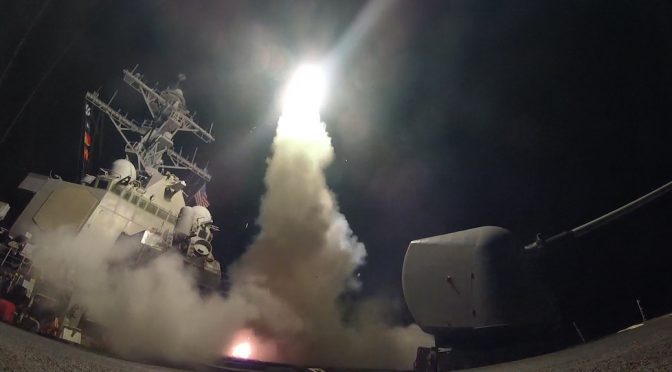This article provides an analysis of the benefits a Comprehensive Test-Ban Treaty and its ratification process would have on international norms, order, and the prosperity of all States involved. In a comprehensive call to action, Matsick recommends an insightful four-sided bargain by four of the largest nuclear powers that would suppress strategic fears and argues… Continue reading Shaking the Rust Off the Comprehensive Nuclear-Test-Ban Treaty Ratification Process
Category: International Law
Requesting a Challenge Inspection Against Syria Under the Chemical Weapons Convention: Venturing into Uncharted Territory
In response to the April 2018 chemical attack in Syria that killed more than 40 people, the United States, France, and Britain launched more than 100 missiles targeting three suspected chemical weapon storage and research facilities. However, subsequent reports have raised questions concerning the accuracy of the intelligence regarding these facilities. Rather than conducting this… Continue reading Requesting a Challenge Inspection Against Syria Under the Chemical Weapons Convention: Venturing into Uncharted Territory
Deterrence as the MacGuffin: The Case for Arms Control in Outer Space
This article examines the theory and practice of two partially contrasting policy approaches to US national security and global stability: deterrence, which has long been regarded as virtually the “Holy Grail” of post-World War II US strategy, and arms control, which offers alternative goals, procedures, and structures. In the realm of nuclear weapons, both approaches… Continue reading Deterrence as the MacGuffin: The Case for Arms Control in Outer Space



